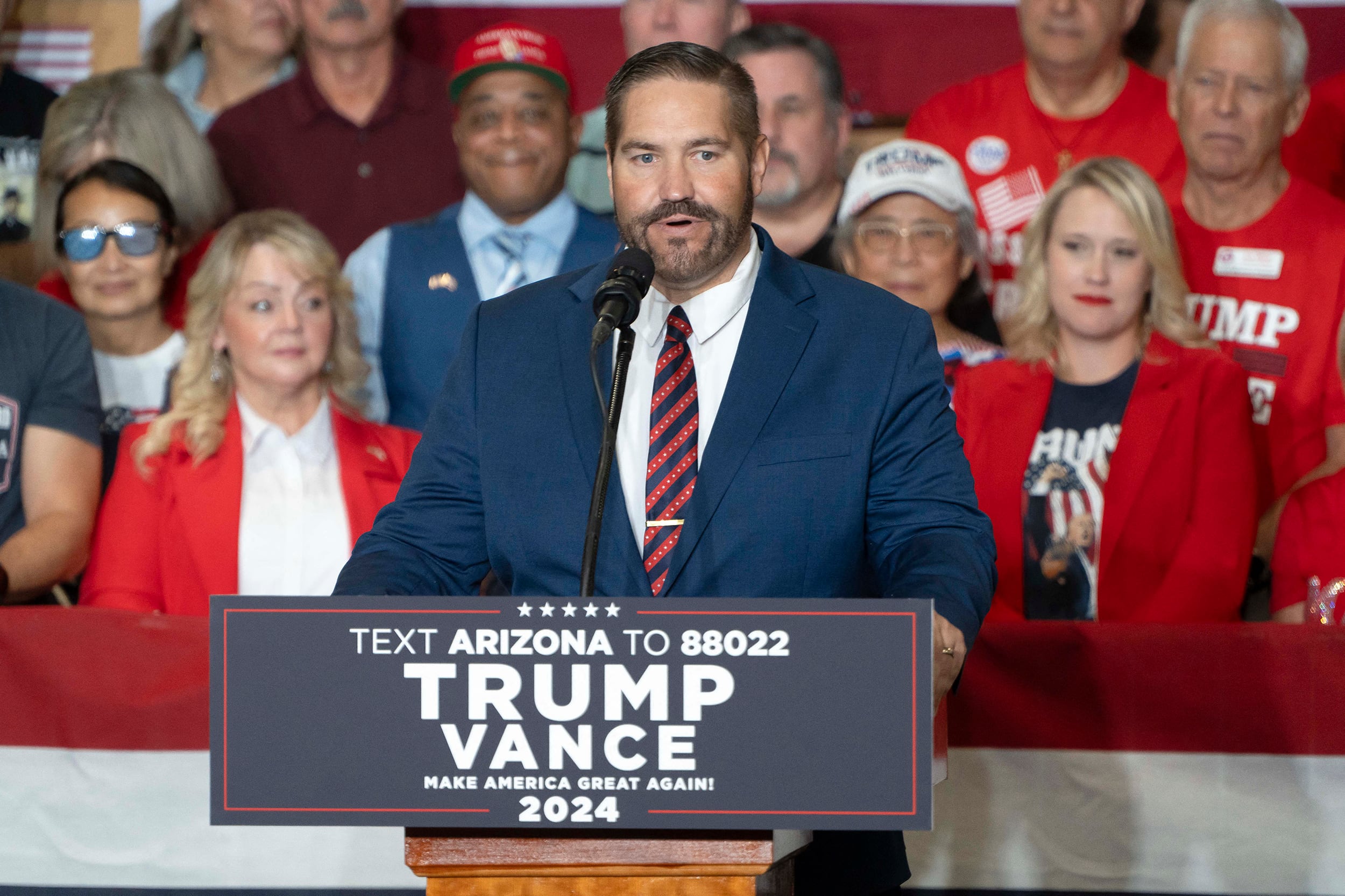Votebeat is a nonprofit news organization reporting on voting access and election administration across the U.S. Sign up for Votebeat Arizona’s free newsletter here.
What happened? A Maricopa County Superior Court judge on Thursday rejected Maricopa County Recorder Justin Heap’s request to halt an audit of the county’s voter registration system and election technology.
Judge Scott Blaney wrote that he was initially concerned voters’ personal information would be at risk, but was “credibly informed” that the county and vendor had a comprehensive nondisclosure agreement and the vendor’s personnel had undergone background checks. Blaney also found “that the Recorder has not established that the Board’s actions with regard to the assessment violate any Arizona statute.”
What’s the dispute? The emergency hearing over the audit of the voter registration system on Monday was one part of a larger legal fight between Heap and the county Board of Supervisors over how election duties and authority should be divided between them.
After Heap, a Republican, took office in January, he rejected an earlier agreement that governed how elections would be run, saying his predecessor, also a Republican, and the previous iteration of the Republican-controlled five-member board had taken away duties assigned to him under law.
Heap and the board negotiated for months before Heap filed suit on June 12, claiming that the supervisors “engaged in an unlawful attempt to seize near-total control over the administration of elections.” The supervisors then countersued.
Heap asked Blaney to issue an immediate order to halt the review of the county’s voter registration system by a vendor, the Intersect Group, and suspend its contract. Heap’s chief information officer, Bryan Colby, in court documents said he was concerned that the vendor would have “unfettered access to sensitive election systems.”
Heap’s attorney, James Rogers, argued in court on Monday that “only the recorder has the authority to grant the access” that the contractor has.
The Board of Supervisors’ attorney, Kory Langhofer, said the law allows access for a “government official doing his job,” and that includes contractors.
“It doesn’t say a W2, salaried employee with pension,” Langhofer said. “It just says, okay, government official. You can be a government official on contract.”
Blaney wrote in his ruling that he was particularly concerned about giving the Intersect Group access to voter data typically kept confidential through a separate program for domestic violence victims, police officers, and judges, but he “was credibly informed” in the hearing that the vendor would not have access to that.
The county Board of Supervisors said in court filings that it had ordered the review in May to determine how best to split the voter registration database to do the different election functions of the recorder and the board. The recorder is typically responsible for early voting and voter registration, while the board is responsible for candidate and campaign filings, in-person voting, vote centers, hiring of elections workers, and the processing and tabulation of ballots.
The board said that the Intersect Group was carefully vetted and signed a nondisclosure agreement. Thomas Basile, the board’s attorney, said consultants who access information such as birthdates and Social Security numbers go through the same background checks as temporary election workers.
Heap and the supervisors have also clashed over a separate audit of the county’s election processes by the accounting firm BerryDunn, documents obtained by Votebeat show.
Supervisors board Chairman Tom Galvin said in an Oct. 1 letter to Heap that the recorder had ignored auditors even though he had agreed in meetings that such an audit was necessary.
Heap responded saying he objected in part because of the pending litigation, which could fundamentally change the county’s election administration system.
Langhofer threatened in an Oct. 22 letter to subpoena testimony and documents from Heap.
Heap spokesperson, Judy Keane, confirmed to Votebeat on Oct. 31 that the office will provide requested documents to the BerryDunn auditors.
What happens now? A hearing on the lawsuit is scheduled for January.
Read more Votebeat coverage of the dispute between Heap and Maricopa County supervisors:
- Maricopa County recorder turns over texts sought by Votebeat about his fight for election authority, Sept. 22, 2025
- Democratic Maricopa County supervisor calls for corruption investigation into recorder, July 30, 2025
- Text messages show how Maricopa County recorder pressured supervisors for control of elections, July 30, 2025
- Arizona budget proposes millions for Maricopa County recorder as he clashes with supervisors, June 20, 2025
- Maricopa County recorder sues supervisors over election powers, June 12, 2025
- Maricopa County poised to hire national consulting firm for review of election procedures, May 20, 2025
- In Arizona’s Maricopa County, a public ‘battle’ for control of elections, February 27, 2025
Contact Votebeat at az.tips@votebeat.org.




